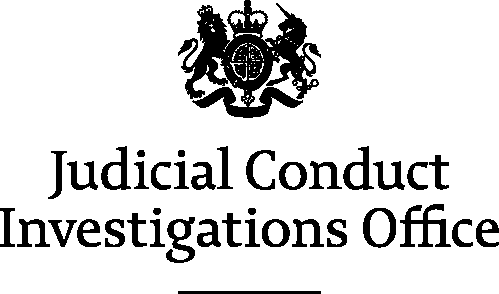




JCIO 114/24
Date: 25 March 2025
A spokesperson for the Judicial Conduct Investigations Office said:
Former Deputy District Judge (DDJ) Emily Windsor was subject to a disciplinary investigation following a complaint that she had delayed issuing a judgment. The Lord Chancellor and Lady Chief Justice agreed that had the former judge not resigned before the conclusion of the investigation, she would have been removed from office.
Facts
The Guide to Judicial Conduct states that judicial office-holders are expected to display diligence and care in the discharge of judicial duties.
In September 2023 solicitors complained on behalf of their client that DDJ Windsor, as she was, had still not issued a written judgment following a trial in November 2021. Following correspondence with the parties in April and May 2023 in which the judge stated that she would send a draft judgment in the next few days, she then failed to respond to three further requests from the parties in June and August 2023.
Disciplinary panel’s findings
Following an investigation carried out under the Judicial Conduct (Judicial and other office-holders) Rules 2014, a nominated judge found that the former judge’s failure to issue the judgment amounted to misconduct and recommended that she be issued with a reprimand. The Lady Chief Justice and the Lord Chancellor decided that the matter should be referred to a disciplinary panel to consider removal from office following the former judge’s lack of engagement with the disciplinary process and the fact that the judgment remained outstanding at that time.
At the conclusion of its investigation, the disciplinary panel agreed with the nominated judge’s findings of misconduct and recommended that the former judge be removed from office.
The panel took into consideration the fact that the former judge was issued with formal advice in 2019 for the delay of twelve months in issuing a judgment. It considered that the former judge had failed to respond to the parties or apologise and did not engage with the disciplinary process until the latter stages of the investigation. It acknowledged that there was some mitigation, in the former judge’s belated acceptance of responsibility, her personal circumstances and that the judgment had finally been produced after thirty-two months.
Decision
After the former judge submitted her resignation, the Lord Chancellor and Lady Chief Justice exercised their discretion under the Judicial Discipline (Prescribed Procedures) Regulations 2014 to continue to deal with the case.
They agreed that the former judge’s actions amounted to misconduct and that had she not already resigned, she would have been removed from office.
Media queries in relation to the JCIO should be made in the first instance to the Judicial Press Office - telephone 020 7073 4852 or via email - press.enquiries@judiciary.gsi.gov.uk
Sanctions for misconduct by judicial office-holders are set out in the Constitutional Reform Act 2005. They are, in order of severity: formal advice, formal warning, reprimand and removal from office.
For more information about the Office, including details on how to make a complaint against a judicial office holder, you can visit the JCIO website at: Judicial Conduct Investigations website